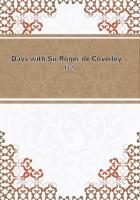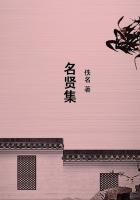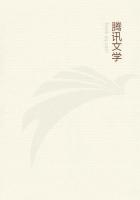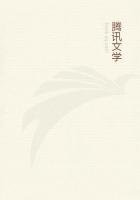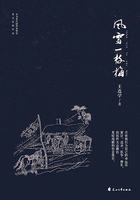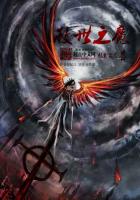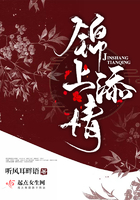Though by the latter part of the year 1391 Chaucer had lost his Clerkship of the Works, certain payments (possibly of arrears) seem afterwards to have been made to him in connexion with the office. A very disagreeable incident of his tenure of it had been a double robbery from his person of official money, to the very serious extent of twenty pounds. The perpetrators of the crime were a notorious gang of highwaymen, by whom Chaucer was, in September, 1390, apparently on the same day, beset both at Westminster, and near to "the foul Oak" at Hatcham in Surrey. A few months afterwards he was discharged by writ from repayment of the loss to the Crown. His experiences during the three years following are unknown;but in 1394 (when things were fairly quiet in England) he was granted an annual pension of twenty pounds by the King. This pension, of which several subsequent notices occur, seems at times to have been paid tardily or in small instalments, and also to have been frequently anticipated by Chaucer in the shape of loans of small sums. Further evidence of his straits is to be found in his having, in the year 1398, obtained letters of protection against arrest, ****** him safe for two years. The grant of a tun of wine in October of the same year is the last favour known to have been extended to Chaucer by King Richard II. Probably no English sovereign has been more diversely estimated, both by his contemporaries and by posterity, than this ill-fated prince, in the records of whose career many passages betokening high spirit strangely contrast with the impotence of its close. It will at least be remembered in his favour that he was a patron of the arts; and that after Froissart had been present at his christening, he received, when on the threshold of manhood, the homage of Gower, and on the eve of his downfall showed most seasonable kindness to a poet far greater than either of these. It seems scarcely justifiable to assign to any particular point of time the "Ballade sent to King Richard" by Chaucer; but its manifest intention was to apprise the king of the poet's sympathy with his struggle against the opponents of the royal policy, which was a thoroughly autocratical one. Considering the nature of the relations between the pair, nothing could be more unlikely than that Chaucer should have taken upon himself to exhort his sovereign and patron to steadfastness of political conduct. And in truth, though the loyal tone of this address is (as already observed) unmistakeable enough, there is little difficulty in accounting for the mixture of commonplace reflexions and of admonitions to the king, to persist in a spirited domestic policy. He is to "Dread God, do law, love truth and worthiness,"and wed his people--not himself--"again to steadfastness." However, even a quasi-political poem of this description, whatever element of implied flattery it may contain, offers pleasanter reading than those least attractive of all occasional poems, of which the burden is a cry for money. The "Envoy to Scogan" has been diversely dated, and diversely interpreted. The reference in these lines to a deluge of pestilence, clearly means, not a pestilence produced by heavy rains, but heavy rains which might be expected to produce a pestilence. The primary purpose of the epistle admits of no doubt, though it is only revealed in the postscript. After bantering his friend on account of his faint-heartedness in love:--
"Because thy lady saw not thy distress, Therefore thou gavest her up at Michaelmas--"Chaucer ends by entreating him to further his claims upon the royal munificence. Of this friend, Henry Scogan, a tradition repeated by Ben Jonson averred that he was a fine gentleman and Master of Arts of Henry IV's time, who was regarded and rewarded for his Court "disguisings" and "writings in ballad-royal." He is therefore appropriately apostrophised by Chaucer as kneeling --at the streames head Of grace, of all honuor and worthiness, and reminded that his friend is at the other end of the current. The weariness of tone, natural under the circumstances, obscures whatever humour the poem possesses.
Very possibly the lines to Scogan were written not before, but immediately after, the accession of Henry IV. In that case they belong to about the same date as the wellknown and very plainspoken "Complaint of Chaucer to his Purse," addressed by him to the new Sovereign without loss of time, if not indeed, as it would be hardly uncharitable to suppose, prepared beforehand. Even in this "Complaint" (the term was a technical one for an elegiac piece, and was so used by Spenser) there is a certain frank geniality of tone, the natural accompaniment of an easy conscience, which goes some way to redeem the nature of the subject. Still, the theme remains one which only an exceptionally skilful treatment can make sufficiently pathetic or perfectly comic. The lines had the desired effect; for within four days after his accession--i.e. on October 3rd, 1399--the "conqueror of Brut's Albion," otherwise King Henry IV, doubled Chaucer's pension of twenty marks, so that, continuing as he did to enjoy the annuity of twenty pounds granted him by King Richard, he was now once more in comfortable circumstances. The best proof of these lies in the fact that very speedily--on Christmas Eve, 1399--Chaucer, probably in a rather sanguine mood, covenanted for the lease for fifty-three years of a house in the garden of the chapel of St. Mary at Westminster. And here, in comfort and in peace, as there seems every reason to believe, he died before another year, and with it the century, had quite run out--on October 25th, 1400.

